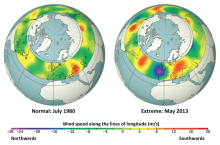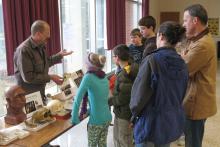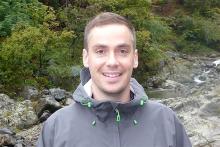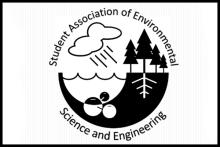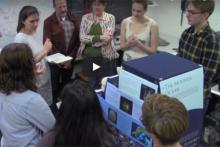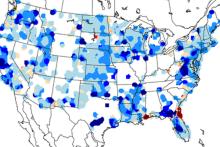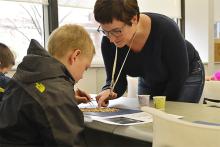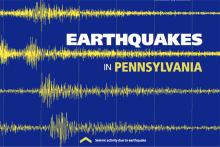Unprecedented summer warmth and flooding, forest fires, drought and torrential rain — extreme weather events are occurring more and more often, but now an international team of climate scientists has found a connection between many extreme weather events and the impact climate change is having on the jet stream.
Students can get cool rocks, minerals and fossils and learn more about nature at the annual Minerals Junior Education Day. The educational program, co-sponsored by Penn State's College of Earth and Minerals Sciences Museum and Art Gallery, is designed to encourage the interest of students in grades one through eight in the earth sciences.
Andrew Smye, assistant professor of geosciences at Penn State, has been recognized by the Geological Society of London for his early career accomplishments.
he Penn State Student Association of Environmental Science and Engineering (SAESE) will hold the 20th annual Environmental Chemistry and Microbiology Student Symposium (ECMSS) from 5-9 p.m. on April 21 and 9 a.m.-6 p.m. on April 22 in the Forest Resources Building. Abstract submission deadline is March 24.
Geosciences graduate students worked to create a new exhibit in the EMS Museum & Art Gallery. The exhibit focused on several students' research and employs numerous hands-on activities to create an interactive exhibit.
Richard Alley, Evan Pugh University Professor of Geosciences and associate of the Earth and Environmental Systems Institute at Penn State, will receive the 2017 Wollaston Medal.
Penn State will begin offering massive open online courses through FutureLearn, the United Kingdom’s leading MOOC platform, as part of the organization’s launch in the United States.
Changes in climate can rapidly impact even the deepest freshwater aquifers according to Penn State and Columbia University hydrologists.
Geosciences doctoral student Claire Cleveland is leveraging the support from a highly competitive National Science Foundation fellowship to create more science-based outreach opportunities geared toward the general public.


